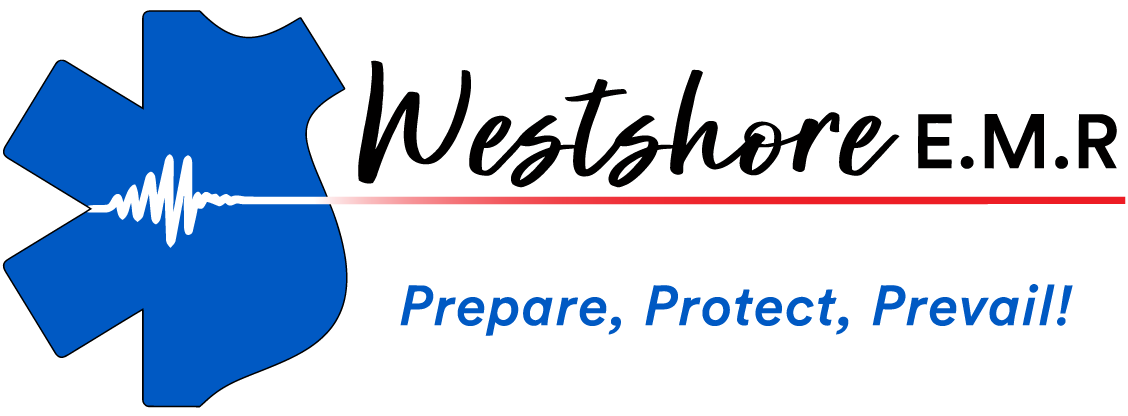At Westshore E.M.R, we offer comprehensive Bloodborne Pathogen training to ensure individuals are well-equipped to handle exposure risks in various environments. Whether you’re a healthcare worker, emergency responder, or work in any profession where exposure to blood or bodily fluids is possible, this course provides essential knowledge to protect yourself and others from the dangers of bloodborne pathogens.
Bloodborne pathogens are harmful microorganisms present in blood and other bodily fluids that can cause serious diseases, including HIV, Hepatitis B, and Hepatitis C. This course educates participants on how these pathogens are spread, how to avoid exposure, and the necessary steps to take in case of accidental exposure. Understanding the risks and protective measures is crucial for ensuring the safety of both workers and those they care for.
Understanding Bloodborne Pathogens: Learn about the types of bloodborne pathogens, how they are transmitted, and the diseases they can cause. This section covers common pathogens such as Hepatitis B, Hepatitis C, and HIV.
Modes of Transmission: The course explores the different ways bloodborne pathogens can be transmitted, including through needlesticks, cuts, abrasions, and contact with mucous membranes. You will learn the potential risks in various environments such as hospitals, laboratories, or even public spaces.
How to Prevent Exposure: Preventing exposure to bloodborne pathogens is key. The course covers essential protective measures such as the proper use of personal protective equipment (PPE), including gloves, masks, and face shields, as well as safe handling and disposal of contaminated materials.
Post-Exposure Procedures: In case of exposure, it is important to act swiftly. You will learn the steps to take immediately after an exposure incident, including cleaning the affected area, reporting the incident, and seeking medical care. The course will also explain the importance of following institutional protocols and seeking testing for possible infections.
Workplace Safety Guidelines: The course includes best practices for maintaining a safe working environment. This includes proper cleaning and disinfection protocols, safe needle disposal techniques, and employee training to minimize the risks of bloodborne pathogen exposure.
Healthcare Workers: Doctors, nurses, laboratory technicians, and other healthcare providers who are at high risk of exposure to bloodborne pathogens.
Emergency Responders: First responders, paramedics, and other emergency personnel who are likely to come into contact with bodily fluids during their duties.
Security Personnel: Security officers and staff working in environments where there is potential contact with blood or bodily fluids, such as correctional facilities, healthcare institutions, or public spaces.
General Public and Workplace Safety: This course is also beneficial for anyone working in environments where exposure to blood or bodily fluids is a possibility, including janitorial staff, caregivers, and childcare providers.
Certified Experts: Our instructors are experienced professionals who provide accurate, up-to-date training on the risks of bloodborne pathogens and best practices for prevention and exposure management.
Interactive Learning: We combine theoretical knowledge with practical guidance, using real-life scenarios and hands-on demonstrations to ensure you are prepared to handle exposure incidents effectively.
Comprehensive Certification: Upon completing the course, participants will receive certification, ensuring they are fully prepared to minimize risks and respond to exposure incidents according to best practices.
Reduced Risk of Exposure: Learn vital techniques to reduce the risk of exposure to bloodborne pathogens, including proper hygiene practices, use of PPE, and disposal of contaminated materials.
Confidence in Crisis: Gain the knowledge needed to act swiftly and confidently if exposed to bloodborne pathogens, reducing the risk of long-term health consequences.
Workplace Compliance: Stay compliant with workplace safety regulations and standards, ensuring that you meet OSHA guidelines and other health and safety requirements.
Protection for Yourself and Others: By taking this course, you contribute to a safer environment for both yourself and those around you, whether you’re in a healthcare setting or another high-risk profession.
Bloodborne Pathogen training from Westshore E.M.R is crucial for anyone working in environments where exposure to blood or bodily fluids is possible. This course will equip you with the knowledge and tools to protect yourself and others, prevent exposure, and respond appropriately in case of an incident. With expert instruction, hands-on learning, and comprehensive support, you’ll leave with the confidence and skills necessary to safeguard against the risks of bloodborne pathogens. Join us today to receive your certification and ensure a safer work environment for all.

16A Bel Air South Park way #327 Bel Air, MD 21015
(410) 870-5451